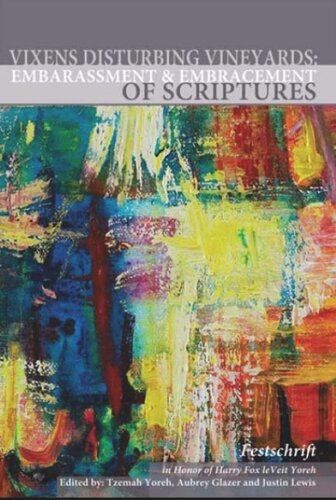

Most ebook files are in PDF format, so you can easily read them using various software such as Foxit Reader or directly on the Google Chrome browser.
Some ebook files are released by publishers in other formats such as .awz, .mobi, .epub, .fb2, etc. You may need to install specific software to read these formats on mobile/PC, such as Calibre.
Please read the tutorial at this link: https://ebookbell.com/faq
We offer FREE conversion to the popular formats you request; however, this may take some time. Therefore, right after payment, please email us, and we will try to provide the service as quickly as possible.
For some exceptional file formats or broken links (if any), please refrain from opening any disputes. Instead, email us first, and we will try to assist within a maximum of 6 hours.
EbookBell Team

4.7
96 reviewsEmbarrassment and embracement are two moments in the reading, misreading and re-reading of scriptures, defined broadly to include both canonical and non-canonical texts. Despite what Harold Bloom calls our "belatedness" in this process, every reading community has its way of confronting that moment of embarrassment so as to re-embrace or reject its implications. These implications are especially strong in religious cultures with a nomian tradition. By entering into that very tension between what Fox calls embarrassment and re-embracement, every reader recognizes the anxiety of a narrative's influence upon a community. Papers dealing with different aspects of this phenomenon are part of a festschrift honoring Professor Harry Fox (LeBeit Yoreh) the originator of this seminal idea in the transmission of texts. Contributors include such scholars as Yaakov Elman, Simcha Fishbane, the late Chana Safrai and Tirzah Meacham as well as many students, colleagues and friends of Professor Fox.